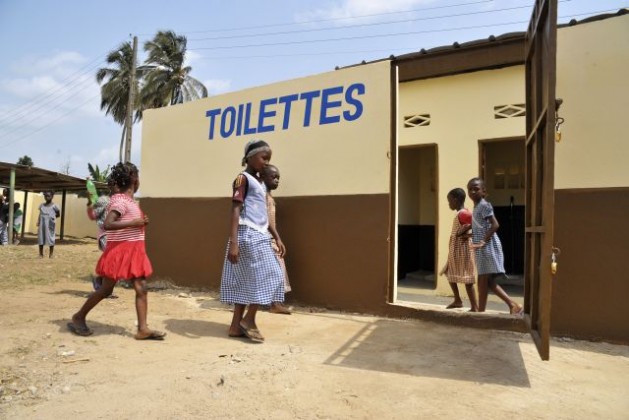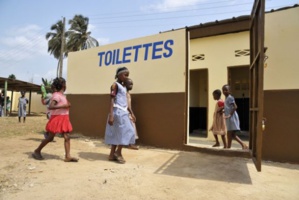United Nations – 23 July 2015 – At the end of last month the United Nations published a report about the poor defecation system or the lack of any such system in the developing country and the poor countries respectively.
The report was issued by the “Joint Monitoring Programme” which looks out for theprogrss made to meet the plans on “Sanitation and Drinking Water System” based on the MDG assessment of 2015. According to the released news statistically almost one in each three people are deprived of any “sanitation facilities”. Consequently, the entire mass of “946 million people” regularly defecates in the open. The head of “UNICEF’s global water, sanitation and hygiene programmes”, Sanjay Wijesekera states:
The report was issued by the “Joint Monitoring Programme” which looks out for theprogrss made to meet the plans on “Sanitation and Drinking Water System” based on the MDG assessment of 2015. According to the released news statistically almost one in each three people are deprived of any “sanitation facilities”. Consequently, the entire mass of “946 million people” regularly defecates in the open. The head of “UNICEF’s global water, sanitation and hygiene programmes”, Sanjay Wijesekera states:
“What the data really show is the need to focus on inequalities as the only way to achieve sustainable progress.
“The global model so far has been that the wealthiest move ahead first, and only when they have access do the poorest start catching up. If we are to reach universal access to sanitation by 2030, we need to ensure the poorest start making progress right away”.
The reports identifies the root cause of failures to meet the goals of sanitation, whereby it attributes the delay to “inadequate investments”, resulting in high margins of unaffordable products along with existing “social norm” that encourages the practice of “open defecation”. However, it needs to be mentioned at first that since the year of 1990, an additional “2.1 billion people” were given access to better sanitation, yet it falls short of reaching the target set by the “Millennium Development Goal”.
Looking at the “present rate of progress” on the work of improving sanitation on a global scale, the report predicted that if this rate continues then the task would take another three hundred years to complete. The policy analyst of WaterAid, Tim Brewer informed IPS that:
“The poorest are often still being left behind. What we need to do in the new U.N. Sustainable Development Goals (SDGs), now under negotiation, is to make sure that progress for the poorest is made the headline figure.
“We cannot have another situation where we appear to be succeeding because the situation of the comparatively wealthy has improved, even as millions of people are still falling ill from dirty water or from environments that are contaminated with faeces”.
The world is a conglomeration of stark opposites indeed, as at one end of the people defecate without proper sanitation while on the South Korean and Japanese end of the globe sanitation system is trapping luxury. As a result, people get to experience “automatic flushing”, “piped in music” along with “scenic window views”. Ironically, for some the scenery adds to the luxury in sanitation while for other it means coordinating “bowel movements” with “train schedules”, leading to “chronic malnutrition”.
Nevertheless, Wijesekera informed that a suggestion of “an even more ambitious sanitation target” is being made so as to “eliminate open defecation” on the whole. In order to effectuate such target the foremost attention should be diverted “on the poorest and most vulnerable right now”. He believes, basing himself on past examples that once a country recognises “the importance of tackling inequalities”, be it in the field of hygiene, water and sanitation, it can resolve the gaping social breaches. However, along with proper investments, people also need change their “attitudes and behaviours”.
References:
http://www.ipsnews.net/2015/06/toilets-with-piped-music-for-rich-open-defecation-on-rail-tracks-for-poor/






